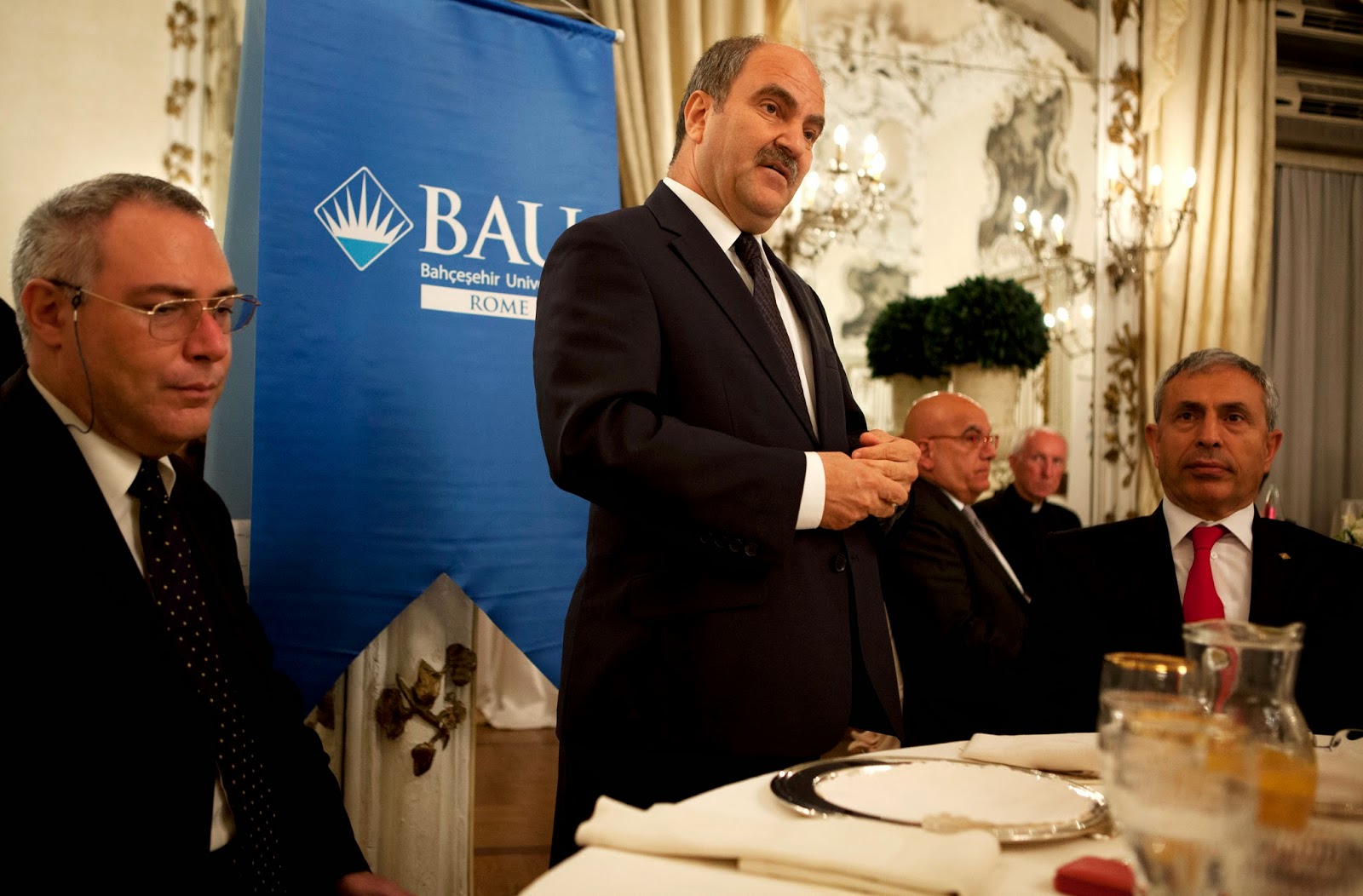Initiative –
University of Rome “La Sapienza”, one of
the most ancient Italian Universities
and the biggest one in Europe, launches the call for papers for an
international Conference in History and Political Science “The Great War.
Analysis and Interpretation”, which will be held in Rome on June 19th - 20th,
2014.
Aim - The
Conference aims at encouraging a new debate on the theories and reconsidering
traditional academic cliché, thus welcoming less studied topics regarding the
Great War.
Modality - Program
contains both six plenary sessions and thematic sessions structured in panels,
with chair, discussant and at least three speakers in each. Participants will
present and discuss their contributions correlated to research themes of high
scientific relevance, about the topic of the conference.
Method - The
scientific approach, promoted by the Conference Organizing Committee is
characterized by internationality, interdisciplinarity and conviction that only
combining different disciplines and efficient research methods will allow us to
reconstruct various aspects and facts of the Great History. In this perspective
Scholars and researchers in History, Political Science, Economics, Sociology,
Strategic Studies, Geopolitics, Geography, Literature and other fields
correlated to the topic in of the Conference, are warmly welcome to
participate.
Topics -
Particular attention will be given to the ideological debate, the use of
propaganda, the evolution of the “war-phenomena”, the issues of the military
history, political and social consequences of the conflict, its perception and
evolution in popular culture, as well as to the heritage of the Great War in
contemporary foreign politics.
Sessions - For
the reasons stated above, the Organizing Committee encourages submitting
applications, and once analyzed and approved by our scientific committee, will
be scheduled in appropriate sessions.
1 International contest
2 War and
politics: governments, personalities, political parties, intervention, war
goals;
3 Military
history: military institutions, military operations, technologies, life in
trenches, prisoners;
4 Culture and
society: economics, war production,
enrollment, the role of women, propaganda, literature, art and music;
5 The nationality
question: nationalisms, separatism, irredentism. The Rome Conference on the
oppressed nationalities (1918);
6 The fourth year
of the war: entrance of the United States of America, Bolshevik revolution, the
social impact of the great offensives.
Scientific Committee
Dominique Arel, Ottawa University
Annette Becker, Paris West University Nanterre La
Défense, Museum of the Great War and Research Centre
Francesco
Benvenuti, University of Bologna
Antonello Folco
Biagini, Sapienza University of Rome
Stefano Bianchini, University of Bologna, Center for
East-Central European and Balkan Studies
Paola Carucci, Manager of Historical Archives of the
President of the Republic Mariam Chkhartishvili, Ivane Javakhishvili, Tbilisi
State University
Daniele Conversi, University of the Basque Country and
Ikerbasque, Bilbao
Roberto Pasca di
Magliano, Sapienza University of Rome
Pasquale Fornaro, University of Messina
Ljubomir Frčkoski, St. Cyril and Methodius University,
Skopje
Altay Goyushov, Baku State University
Ivo Goldstein, Ambassador of Croatia to France
University of Zagreb
Cesare La
Mantia, University of Trieste
Mark Levene, University of Southampton
Andre Liebich, Graduate Institute of International and
Development Study, Geneva
Giovanna Motta,
Sapienza University of Rome
Mario Morcellini,
Sapienza University of Rome
Matteo Pizzigallo, University of Naples Federico II
Julius H. Schoeps, Moses Mendelssohn Centre for
European Jewish Studies, Potsdam
Stanislaw Sierpowski, University of Poznan
Cornel Sigmirean, Petru Maior University of
Târgu-Mureş
Roberto Sinigaglia, University of Genoa
Zafer Toprak, Bosphorus University, Istanbul
Luciano Tosi, University of Perugia
John Treadway, University of Richmond
Lucio Ubertini,
IHP Unesco – Italian Committee













.jpg)




































